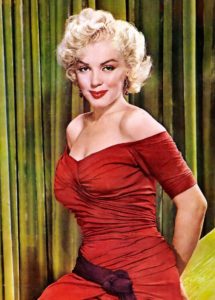Today’s first page critique is for a mystery/thriller entitled ‘Unearthed’. My comments follow – see you on the flip side – and I look forward to getting further feedback from the TKZ community.
UNEARTHED
The thing Rosemary said was a corpse lay against the garden wall, under the tree. Jittery from lack of sleep, Cal left her on the outside stairs leading to his flat, crossed the lawn and approached the wall, cold London air nipping at him. It wouldn’t really be a dead body, of course, whatever his landlady said. A trick, a mannequin got up in men’s clothes, or some wino passed out after wandering in off the streets, it would be. Then he saw the long coat and dirty orange hood rising out of it.
“Oh, this guy,” he said.
“What?” Rosemary was all clenched into herself, teeth at her nails. He’d never seen the old girl shaken before; he couldn’t have this.
He raised his voice. “Come on, mate. Time to go.” The man didn’t move. His hooded face was turned to the wall. Cal tapped his shoulder. His fingers met a jolting thinness under the coat. He sighed. If he gave the guy some breakfast, he’d keep coming back and Amanda’d throw a fit. Rosemary wouldn’t be any too joyful, either. “Hey. You can’t sleep here.”
“He isn’t,” Rosemary said. “I knew I shouldn’t have, but I looked. I pulled that hood up a bit. He’s bloody dead.”
Cal crouched. The man didn’t smell of alcohol. Something weird, sweetish, but not alcohol. There was no movement, either. Not even breathing. “Oh, no. Oh, God.”
Rosemary came down a few steps. “Did you say you knew him?”
“No, just saw him this morning, coming home from work. I thought he was just pissed. He must’ve been ill. I’m such a dick, I should’ve checked.”
Rosemary waved a dismissive hand. Cal saw all her sixty-three years this morning, gathered in lines on her forehead and around her mouth. “That wouldn’t have been him.”
“It was. I remember the clothes. I was coming through the park, he was headed the same direction.” Stumbling and swaying behind him as he crossed the park in winter dawn. “He was holding his head funny; maybe he was in an accident. He was quite far behind but I could’ve stopped. I should have asked if he was — Oh, shit, Rosemary, what if he was dying and I just –”
“It wasn’t the same man. Look at him.”
Cal pressed his fingers into his brow. “Didn’t see his face.”
“Just look,” she said.
MY COMMENTS
Overall, I think this first page has potential. I liked the casualness and tone of protagonist and his reaction to the possibility that the body was that of ‘wino’ he’d seen earlier (someone he’d ignored rather than helped) felt both realistic and sympathetic. For me, however, the dramatic potential of this first page is undermined by some awkward phrasing and dialogue, as well as inconsistencies in Rosemary’s character/reactions. I would also liked a bit more sense of place (more about that below). First, let’s deal with my phrasing/dialogue concerns.
Even in the first paragraph there are some awkward, clunky sentences, repetition and disjointed sentences which initially seemed jarring (at least to me). I had similar phrasing issues throughout the first page and thought the easiest way to illustrate these concerns was to mark up the page – bolding the issues/awkwardness and putting my comments in italics. While some of my comments may seem a bit petty, it is vital that this first page reads smoothly and succinctly to capture the reader’s interest. I’ve also added some comments about Rosemary’s reactions and dialogue – which I discuss in greater detail after the marked up version.
So here goes.
UNEARTHED
The thing Rosemary said was a corpse (seems a clumsy way to begin) lay against the garden wall, under the tree. Jittery from lack of sleep, Cal left her (we know it’s Rosemary but grammatically this sounds like the corpse as that’s the subject of the previous sentence) on the outside stairs leading to his flat, crossed the lawn and approached the wall (repetition), cold London air nipping at him. It wouldn’t really be a dead body, of course, whatever his landlady said (note: at this stage we don’t know Rosemary is his landlady). (Maybe a colon or dash would be better grammatically?) A trick, a mannequin got up in men’s clothes, or some wino passed out after wandering in off the streets, it would be (this is unnecessary and clunky). Then he saw the long coat and dirty orange hood rising out of it (what is it? Assume coat but sounds awkward).
“Oh, this guy,” he said.
“What?” Rosemary was all clenched into herself, teeth at her nails (sounds like she’s bent over with her teeth pushing against her nails when I think author means she has her nails in her mouth). He’d never seen the old girl shaken before; he couldn’t have this (awkward/redundant).
He raised his voice. “Come on, mate. Time to go.” The man didn’t move. His hooded face was turned to the wall. Cal tapped his shoulder. His fingers met a jolting thinness (weird description for me) under the coat. He sighed. If he gave the guy some breakfast, he’d keep coming back and Amanda’d (looks weird – I prefer Amanda would) throw a fit. Rosemary wouldn’t be any too joyful, either. “Hey. You can’t sleep here.”
“He isn’t,” (maybe add ‘sleeping’ to be clear – otherwise sounds a bit of an odd reply). Rosemary said. “I knew I shouldn’t have, but I looked. I pulled that hood up a bit. He’s bloody dead.”
Cal crouched. The man didn’t smell of alcohol. Something weird, sweetish, but not alcohol. There was no movement, either. Not even breathing. “Oh, no. Oh, God.”
Rosemary came down a few steps. “Did you say you knew him?” (Cal hasn’t said this…just ‘oh this guy’ – which doesn’t mean/sound like he actually knew him)
“No, just saw him this morning, coming home from work. I thought he was just pissed. He must’ve been ill. I’m such a dick, I should’ve checked.”
Rosemary waved a dismissive hand (why dismissive?? This seems inconsistent given how tense and worried she’s been). Cal saw all her sixty-three years this morning, gathered in lines on her forehead and around her mouth. “That wouldn’t have been him.” (Not sure why she says this – doesn’t make much sense as she doesn’t know who Cal saw…why would she know it wasn’t the same person?)
“It was. I remember the clothes. I was coming through the park, he was headed the same direction.” Stumbling and swaying behind him as he crossed the park in winter dawn. “He was holding his head funny; maybe he was in an accident. He was quite far behind but I could’ve stopped. I should have asked if he was — Oh, shit, Rosemary, what if he was dying and I just –”
“It wasn’t the same man. Look at him.” (Again how does she know that??)
Cal pressed his fingers into his brow. “Didn’t see his face.”
“Just look,” she said. (At what?? Up till now Rosemary hasn’t said she knows anything more about the corpse that Cal does…so why does it now sound like she does??)
ROSEMARY’S CHARACTER, REACTIONS AND DIALOGUE
While I was fine with Cal’s reactions and concerns, I was a little confused by Rosemary. She obviously ran to Cal to tell him she’d discovered a body and, though it was understandable that Cal didn’t believe her initially, Rosemary’s attitude then seems to shift from tension and concern to a dismissiveness that I found very strange. First she dismisses Cal’s observations out of hand and then seems to be certain that the dead body is not the person Cal saw earlier. The rationale for this is unclear. Perhaps Rosemary saw something on the corpse’s face but, based on this first page, it seems odd that she wouldn’t have said something to Cal right away.
SENSE OF PLACE
Finally, I would have like to have got a greater sense of place in this first page. Apart from the reference to ‘London air’ nipping at him, we have only generic references to a wall, a tree, a park, and a block of flats. I would have liked a bit more specificity. For example if we knew it was an old gnarled oak tree, that Cal had been walking on Hampstead Heath, and if the block of flats was a red brick, post WWII era block – this would have all added more color/texture to the first page and helped ground the reader in time/place.
Overall, I think this page could be an interesting opening to a mystery novel set in London and the specific issues I’ve identified can easily addressed during the revision process. So TKZers what do you think? What comments would you give to our brave submitter??








